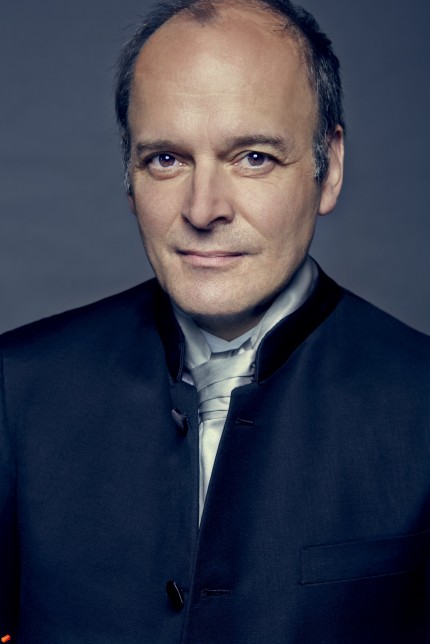Dutoit exhumes two intriguing semi-concertos for CSO’s mostly French program.

When is a piano concerto not a piano concerto?
There are several intriguing works that lie on the far fringes of the soloist-and-orchestra repertory. Many are neglected, not because of any musical lack, but due to the practical fact that they are a challenge to shoehorn into current concert conventions.
So kudos to Charles Dutoit for bringing a pair of such works to this week’s mostly French Chicago Symphony Orchestra program with two compositions that prominently feature a piano soloist without quite tilting into being full-fledged concertos.
The musical output of Vincent d’Indy (1851-1931) was rather circumscribed, and the French composer today is better known as a teacher than for his own music. (His students included Isaac Albéniz, Joseph Canteloube, Arthur Honegger, Darius Milhaud, Cole Porter, Albert Roussel, and Erik Satie.)
The last time the CSO played d’Indy’s Symphonie sur un Chant Montagnard (“Symphony on a French Mountain Air”) Desire Defauw conducted and World War II was still raging. All credit to Dutoit for rescuing this slight but enjoyable work from its local seven-decade exile.
D’Indy’s semi-concerto may not be a profound piece–the central movement tends to meander–yet every work doesn’t have to be Mahler’s Ninth. The music is attractive, clever and well crafted with each of its three movements inspired by the Alpine tune played by the English horn in the opening bars.
Dutoit brought as much concentrated attention and dynamic alertness to this work as if it were Pelleas. Louis Lortie’s middleweight sonority was swamped a bit in tuttis, yet the Canadian pianist was an apt and idiomatic soloist, bringing a refinement and populist touch to the prominent keyboard role. Scott Hostetler’s English horn solo could have used a more rustic outdoor quality but was pure-toned and nostalgic. The CSO musicians seemed to enjoy this romp enormously–many smiles at the slam-bang coda–and put across a lively and virtuosic corporate performance.
Franck’s Symphonic Variations is a stronger work yet nearly as neglected as the d’Indy, largely because most piano soloists would prefer playing a big Romantic concerto to this 15-minute single movement for piano and orchestra. Lortie was even more in synch with the Belgian composer’s taut chromatic style, offering an ideal blend of elegance and dramatic bite. Dutoit and the orchestra lent equally characterful, finely tempered support.
More familiar works of Ravel framed the evening, with Rapsodie espagnole opening the program. Dutoit led an evocative yet firmly lined rendering with the Feria’s flashing Iberian rhythms thrown off with an explosive vitality, all the more exciting for the meticulous balancing.
Ravel’s Suite No. 2 from Daphnis et Chloe closed the concert. Few can equal the Swiss conductor in this repertoire, and Thursday night he showed his natural mastery once again, with the CSO musicians in top form.
Dutoit’s Ravel has a spine. The climax to the “Dawn” opening was resplendent yet impeccably layered, never soupy or overblown. The flute solo in the central Pantomime was aptly pastoral-primeval, and the final dance went with all due Dionysian fervor with Dutoit drawing striking transparency even with seven percussionists cutting loose in the frenzied coda.
The program will be repeated 8 p.m. Saturday and 7:30 p.m. Tuesday. cso.org; 312-294-3000.
Posted in Performances




